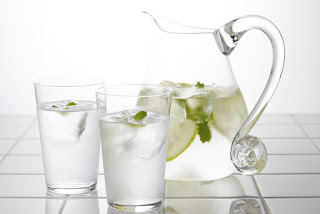According to many studies, soft drinks, sodas, juices and sports energy drinks are doing extensive acid erosion to our teeth, as well as encouraging decay; more so than any other culprit known to damage our teeth.
If asked what the worst culprit behind tooth decay is, most Colorado Springs residents will report “sugary foods.” While you may be partially right in saying this, a recent scientific study that appeared in the Journal of Public Health Dentistry reveals that, in actuality, soft drinks – such as Coca Cola, Mountain Dew, Fanta, Sprite and other sweet carbonated beverages – are the greatest culprits behind advanced dental erosion and tooth decay in Colorado Springs.
The Results of the Study on Popular Beverages and Our Teeth

According to this study of 3,773 participants, almost 80% presented with some degree of dental erosion (a thinning of the enamel covering their teeth), while 15% showed moderate to severe dental erosion. The latter group reported consuming more juice and soft drinks than those with mild tooth wear. Milk was quite popular drink among those with only mild dental erosion.
What does this all mean?
“Sodas, soft drinks, fruit juices and sports energy drinks all have a devastating impact upon your dental health if you do not consume them in moderation,” says one orthodontist in Colorado Springs. “Even patients who have one drink per day will eventually start showing signs of acid erosion, so you can imagine the state of someone’s teeth who consumes gallons of soda per day, which is not uncommon here in America.”
Fruit Juice is a Problem, Too?
All right, so soft drinks are a given. We know that they are packed with sugar, but why is fruit juice lumped in the same category as all those other unhealthy beverages? Surely fruit juice is good for you?
“Fruit juice may be good for your body – especially if unsweetened – but the juice itself is highly acidic and constantly sipping on it will repeatedly expose your dental enamel to an acid bath,” explains the Colorado Springs dentist. “Acid softens the enamel, which leaves it more vulnerable to erosion. Therefore, the more frequently you consume sodas and fruit juices, the more damage you stand to do to your teeth.
“It’s not just sugar that’s a problem… it’s the acidity.”
How Do I Know Whether I Have Dental Erosion?
When the dental enamel covering your teeth thins and becomes worn away, it leaves the underlying dentine more vulnerable and exposed to factors, such as extremes in temperature. This can make eating hot or cold foods and beverages quite uncomfortable; so one indicator of acid erosion is tooth sensitivity.
The best way to tell whether you have a problem or not is to see your dentist and, if necessary, have some restorative work done on your teeth to ensure that there are no breaches in their defense (enamel),” says an orthodontist in Colorado Springs.
A Final Note

The results of this study just add to the seemingly unending literature available on the harmful nature of the beverages we consume by the pool-full here in Colorado Springs. Sure, on a hot day an ice-cold soft drink is more than welcome, but we – as a nation – need to stop viewing sweet beverages as thirst-quenchers and we need to combat this addiction from adolescence.
“Milk and water and occasionally some fruit juice are good for you,” say Colorado Springs dentists. “But if you want to keep your teeth beautiful and healthy for life, avoid soft drinks for the most part.”









 With one surgical appointment, Colorado Springs residents can get a beautiful set of new, non-removable teeth that can last them a lifetime without any additional expense other than the routine professional maintenance needed by anyone. If you look after your new teeth, you’ll never need to spend another cent on replacing teeth – forget costly refittings.
With one surgical appointment, Colorado Springs residents can get a beautiful set of new, non-removable teeth that can last them a lifetime without any additional expense other than the routine professional maintenance needed by anyone. If you look after your new teeth, you’ll never need to spend another cent on replacing teeth – forget costly refittings.
